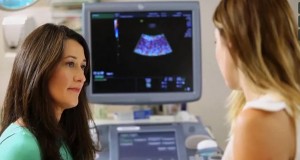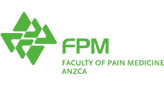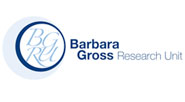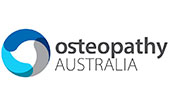
Information about pain and health problems after prolapse surgery using mesh
May 31st, 2017
If you are suffering mesh-related problems, or are considering mesh, you can read the latest Information Sheet for women who have had, or are considering having surgery to treat stress urinary incontinence and pelvic organ prolapse (scroll down to “Information sheet…”). If you would like to consult one of our doctors in relation to pain or problems after mesh surgery, please see the checklist below.
How do I know if I have been affected?
You may have heard in the media about Australian and New Zealand women suffering ongoing pain and health issues in relation to transvaginal mesh implants. We would like to reassure you that not every woman who has transvaginal mesh will have problems. It is clear that some women do, and that it is affecting their health and their lives significantly. If you are concerned and would like to discuss this with someone, please email Liz Howard via support@whria.com.au
Checklist for seeing a WHRIA Specialist
Please email the following to mere.seniloli@whria.com.au
- Name and DOB
- A referral from your GP or specialist for Prof Vancaillie or Dr Yasmin Tan
- If you have transvaginal mesh, obtain a copy from your GP, surgeon or the hospital:
- Your procedure (type of surgery)
- Implant log (type of mesh/device/hardware etc)
- Number of revisions (removal/partial removal etc)
- Has your pathology/mesh been removed?
We have had a large number of women requiring appointments, so please don’t worry if it takes us a week or so to call you for an appointment. Currently the wait time is approximately 2-3 months.
More Information
One of the first steps is to find out how many women are affected; how they are affected; and importantly, what can be done to help. The Australian Government will release the findings of the Senate Inquiry in November 2017.
WHRIA is taking a pro-active approach with the help of Prince of Wales Private Hospital, and the Royal Hospital for Women, our surgeons are learning techniques to remove mesh where possible, as well as utilising natural therapies, free home-based pain management resources to address women’s pain, physical and mental health as a whole.
Transvaginal mesh is used as an implant to resolve pelvic organ prolapse and stress urinary incontinence in women. The product design and implantation techniques appear to be responsible for serious, life-altering complications in some women. It is estimated that there may be as many as 100,000 women with the implant. And of these, the proportion of women suffering complications has been variously estimated to be anywhere between 1% and 30%.
Health Issues Centre has created a Facebook page to try and gather information about the number of women affected, and what their experience has been. We also have an information sheet to help women get the answers and support they they need. Finally, if you would like to provide information anonymously about your experience with mesh, you are invited to complete a confidential survey.
There is no register to systematically capture the number of procedures that have taken place in Australia. Mesh implants have been used since the late 1990s. The procedure is considered to be only partially reversible. Australia’s Therapeutic Goods Administration (TGA) approved use of the mesh, however, more recently it has advised it is monitoring the situation. Women are encouraged to report complications via the TGA website. But note, the serial number of the mesh implanted is required to do so. This can only be obtained through access to medical records.
On 15 February 2017, a senate inquiry was launched into the number of women in Australia with transvaginal mesh implants and related matters.Submissions are due 31 May 2017, with the report and recommendations to follow in November 2017. A guide has been developed to assist women or members of their family to make a submission.
Health Issues Centre encourages and supports women to consider making a submission. If you need assistance with preparing your submission, please contact Health Issues Centre and ask for Francesca Trimboli.
What have the HIC found?
Since April, Health Issues Centre has had over 1600 women complete an anonymous survey, sharing their experience of pelvic mesh.
A full update can be found here.
For more information
- talk to the WHRIA team via support@whria.com.au
- read more about pain associated with pelvic surgery on our website about pudendal neuralgia
- follow our Facebook page for updates as we work towards helping women restore their health









